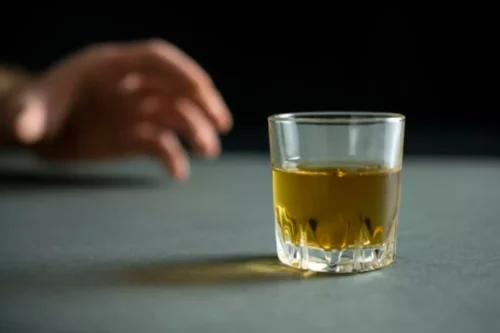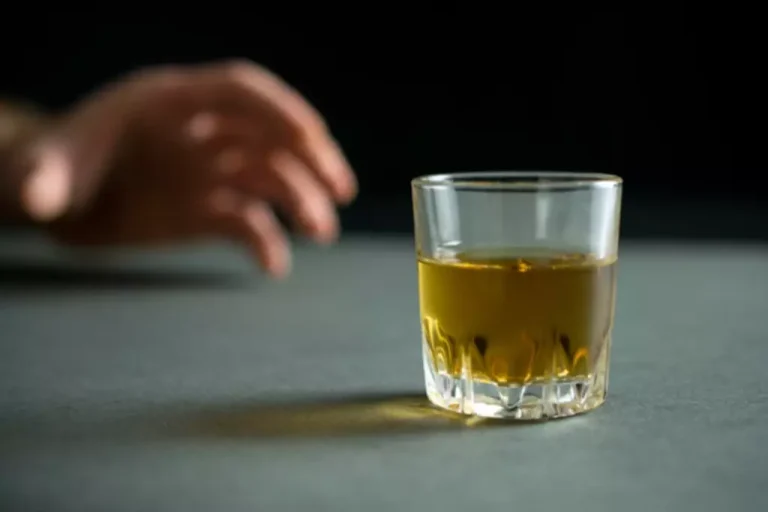
Volpicelli suggests that, perhaps, alcohol brings out the elements of your personality that are already there, making them more pronounced. Over the long term, the impact of alcohol depends on the amount and frequency you consume, says McDonagh. Certain aspects of your personality can lessen, or heighten, according to context — this is called adaptability. Your personality may be comprised of many elements, and there’s no clear-cut definition. She says that, during her blackouts, she could still function, take part in conversations and respond to jokes, in the same way that Goodwin’s subjects could perform calculations.
What Does Blacking Out Feel Like?
Surprisingly,30% of the adolescents reported experiencing an alcohol-induced blackoutat the age of 15, which increased to 74% at age 19. Although alcohol-induced blackouts were previously thought to occur only inindividuals who were alcohol dependent (Jellinek,1946), we now know that blackouts are quite common among healthy youngadults. In fact, approximately 50% of college students who consume alcoholreport having experienced an alcohol-induced blackout (Barnett et al., 2014; White et al., 2002). Therefore, this systematic review provides an update(2010–2015) on the clinical research focused on alcohol-induced blackouts,outlines practical and clinical implications, and provides recommendations forfuture research. Binge drinking plays a significant role in the appearance of alcohol blackouts. Binge drinking is a pattern of alcohol consumption characterized by consuming a large amount of alcohol in a relatively short period of time, resulting in elevated blood alcohol levels.
- From my discussions with people who have experienced blackouts, the amnesia has nearly instantaneous onset and ending.
- However, this type of amnesia isn’t a loss of consciousness, and doesn’t have to involve alcohol — sometimes you’re in the middle of a test or just got into a car accident.
- If alcohol consumption is negatively affecting your interpersonal relationships or other important areas of daily life, you may be living with AUD.
- Alcohol affects each of us differently, but it is known to interfere with impulse control and inhibition.
- While women tend to reach a higher peak BAC faster than men—mostly because they usually weigh less than their male counterparts—binge drinkers are also at risk for blackouts.
- This complex issue intertwines with genetics, psychological health, and stress, making it crucial to address.
National Institute on Alcohol Abuse and Alcoholism (NIAAA)
The platform offers reliable resources, accessible services, and nurturing communities. Its mission involves educating, supporting, and empowering people in their pursuit of well-being. The way a person reacts to alcohol seems to depend on such things as their genetics, constitution, neurological system, and many other imponderable factors. We provide a comprehensive addiction treatment programme, guiding you from admissions to offering help even after you leave rehab. A blackout is not the same as “passing out,” which means either falling asleep or losing consciousness from drinking too much.
- As the function of the brain decreases, the risk for addiction and personality changes increases.
- The amount of alcohol consumed is significant as moderate doses can lead to subtle enhancements in sociability and confidence, but heavy drinking results in mood swings and impulsivity, sometimes even aggression.
- They typically occur when a person’s blood alcohol concentration (BAC) rises rapidly and interferes with the brain.
- Questions about blackouts during routine medical visits could serve as an important simple screen for the risk of alcohol-related harms.
- People may argue that this drunk personality is the truer version of you, but that is not the case.
Results
- If you or a loved one are constantly experiencing alcohol blackouts, you may have developed an alcohol addiction.
- Based on the Marino and Fromme(2015) findings, one could speculate that a genetic vulnerabilityto alcohol-induced blackouts is expressed only under certain environmentalconditions, representing a possible gene by environment interaction.
- In many cases, borderline personality disorder (BPD) is characterized by remorse, shame, or guilt in the frame of suicidal thinking.
- In a study of 2,546college students, LaBrie and colleagues(2011) found that a family history of alcohol problems increasedthe likelihood of blacking out.
- Simply asking about the amount an individual has drunk was not found to be effective.
This is similar to the factthat one cannot know whether another person has a headache; the experience ishappening inside that person’s brain, with no clear observable indices. Perhaps the greatest impediment to rigorous tests of alcohol-inducedblackouts and behavior is that researchers are not ethically permitted toprovide alcohol in sufficient doses to cause a blackout to occur. BrACs of 20g/dl and above are typically required to induce a blackout, thereby limiting theability to safely dose research participants to the point of blackout. Finally,given the growing literature on alcohol-induced memory impairments andblackouts, a standardized assessment for alcohol-induced blackouts is sorelyneeded. Most of the existing research on alcohol-induced blackouts either uses asingle item from the Rutgers Alcohol Problem Index or the investigator’sown description/definition of an alcohol-induced blackout.
Ongoing Recovery Support After Rehab

Also, because short-term memory remains intact, use ofecological momentary assessment with smart phones might also be useful forgathering information about the drinker’s experiences while he or she isin a blackout state. Subsequent interviews could then determine what aspects ofthose events were remembered and whether they were remembered in the same waythat they were reported during the drinking event. This increase in an individual’s blood alcohol concentration (BAC) overwhelms the brain’s memory-forming capacity, particularly in the hippocampus, causing impaired memory formation and leading to memory gaps or complete blackouts during alcohol consumption. Additionally, binge drinking often results in the loss of inhibitions, impaired judgment, and the potential for ptsd blackouts risky behaviors during blackouts, such as unprotected sex or drunk driving. Prolonged binge drinking further increase the risk of extended blackouts as the brain’s memory-forming capacity deteriorates. As the function of the brain decreases, the risk for addiction and personality changes increases.

The science isn’t definitive as of yet, but social behavior and addiction researchers are on their way to the answer. There is a momentary shutdown of the storage process in the brain and ability to refer back to past memories. This can make it difficult or nearly impossible to understand your motives and intentions while under the influence. Mary-Beth Miller, an addiction psychologist at the University of Missouri, found that a simple intervention technique could help blackout drinkers reduce their drinking, a finding she first showed in ex-army veterans and then extended to university drinkers.
Signs of alcohol use disorder

We take mental health content seriously and follow industry-leading guidelines to ensure our users access the highest quality information. All editorial decisions for published content are made by the MentalHealth.com Editorial Team, with guidance from our Medical Affairs Team. Alcohol can cause people to become different people entirely – being more violent, reckless and unpleasant.
It is an online questionnaire that asks individuals about their drinking habits, and reports back how much they are drinking compared to others who are similar in age and background. Blackouts, her team found, serve as a “teachable moment after which individuals are more likely to respond to intervention”. They’re also more common among university students, who are known to ‘pre-game’ to get “a buzz on before they start to socialise, and that makes your blood alcohol level rise fast”, says Hingson. In rats, White showed that there are doses of alcohol where brain cells “still kind of work”, and higher doses where they are completely off – which explains partial blackouts where only fragments are lost.
Two psychologists Robert Nash and Melanie Takarangi have identified the perfect population for investigating this very question. “Colleges and universities teem with amnesiacs of a sort,” they write, referring to the large number of students who drink quantities of alcohol sufficient to wash away whole episodes from memory. “When someone who has been a chronic heavy drinker stops drinking, a rebound occurs in which nerve cells become hyperactive,” he explains. GABA is an amino acid that blocks activity in your central nervous system (CNS). When you drink alcohol, this neurotransmitter activity increases, helping you feel more at ease.
Cribbage Premium from the WildCard Classics Inc
Bells burning Sensuous Slot Review Gamble So it 2024 Online casino Online game Free
20 Greatest Crypto & Bitcoin Casino poker Web sites to try out inside 2024
Категорії новин
Категорії товарів
News categories
Product Categories
(095) 222 04 06 - служба доставки 1100 – 2200
Замовлення приймається до 2:30